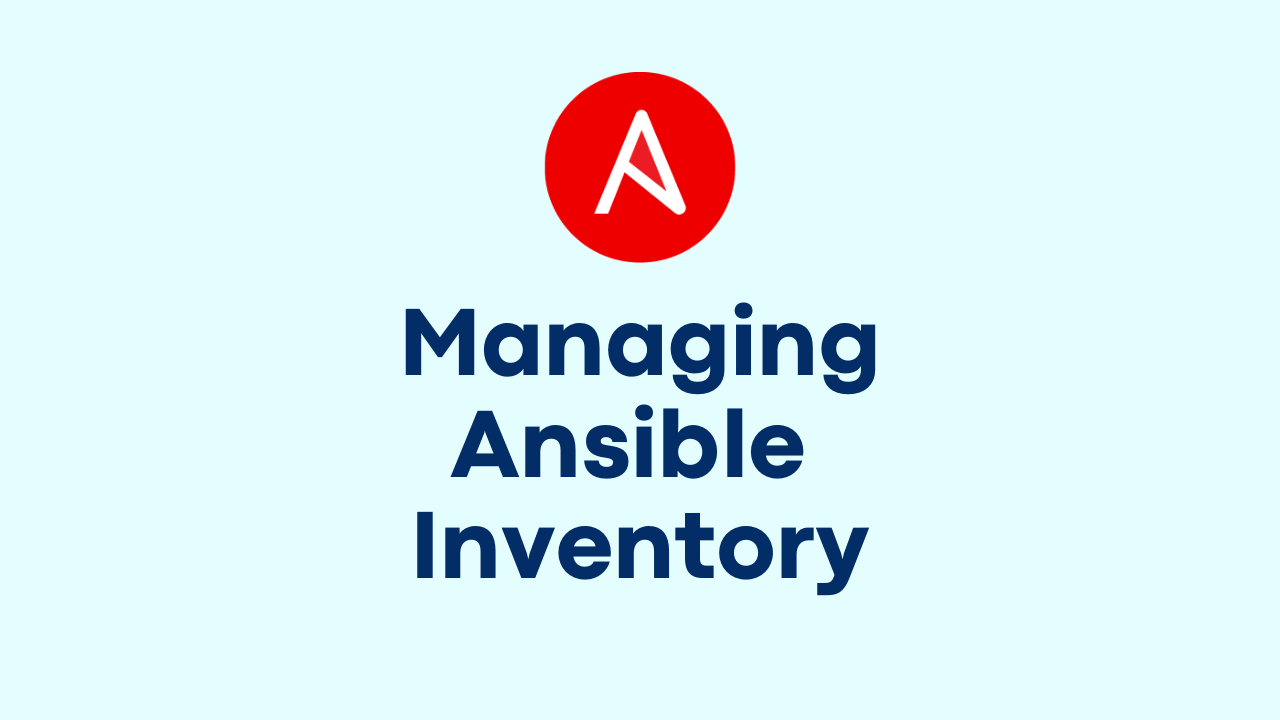SSSD AD integration on RHEL7 using Ansible
-
 Prajith Parammal
Prajith Parammal
- Ansible, Automation, Infrastructre & hardware
- February 18, 2019

#author : [email protected]
##Version : 1.0
- name: Install and configure AD authentication
hosts: all_linux
vars_prompt:
- name: "bind_password"
prompt: "Password for AD admin user"
private: yes
vars_files:
- ./Answer_file
###############################################
tasks:
- name: Install necessary rpms for sssd config
yum:
name: libselinux-python,realmd,oddjob,oddjob-mkhomedir,sssd,adcli,samba-common-tools
state: present
###############################################
- name: Check if machine is bound
shell: /bin/bash -c "getent passwd {{ ad_login_test_user }}@{{ addomain }} | grep {{ ad_login_test_user }}"
register: realmd_bound
changed_when: false
ignore_errors: true
###############################################
- name: leaving Realm
command: /bin/bash -c "realm leave"
when: realmd_bound|failed
ignore_errors: true
###############################################
- name: Removing existing config files
file:
path: "{{ item }}"
state: absent
with_items:
- /etc/krb5.keytab
- /var/lib/sss/db/*
- /var/log/sssd/*
- /etc/sssd/sssd.conf
- /etc/sudoers.d/installSssd
when: realmd_bound|failed
###############################################
- name: Copy Pam.d files
copy: src={{ item.src }} dest={{ item.dest }}
with_items:
- { src: '/etc/pam.d/system-auth-ac', dest: '/etc/pam.d/system-auth-ac.0' }
- { src: '/etc/pam.d/password-auth-ac', dest: '/etc/pam.d/password-auth-ac.0' }
when: realmd_bound|failed
ignore_errors: true
###############################################
- name: Creating symlink system-auth and password-auth
file: src={{ item.src }} dest={{ item.dest }} state=link
with_items:
- { src: '/etc/pam.d/system-auth-ac', dest: '/etc/pam.d/system-auth' }
- { src: '/etc/pam.d/password-auth-ac', dest: '/etc/pam.d/password-auth' }
when: realmd_bound|failed
ignore_errors: true
###############################################
- name: Join system to AD and put the computer object in the Linux OU
command: /bin/bash -c "echo {{ bind_password }} | realm join --user={{ ad_join_admin }} {{ addomain }} && sleep 10"
no_log: True
when: realmd_bound|failed
###############################################
- name: Stopping sssd service
service:
name: sssd
state: stopped
when: realmd_bound|failed
###############################################
- name: Removing logs and db files
file:
path: "{{ item }}"
state: absent
with_items:
- /var/lib/sss/db/*
- /var/log/sssd/*
when: realmd_bound|failed
###############################################
- name: Adding DOmain SID to sssd.conf
blockinfile:
path: /etc/sssd/sssd.conf
block: |
ldap_idmap_default_domain_sid={{ domainsid }}
dyndns_update = false
ldap_use_tokengroups = True
ldap_group_nesting_level = 0
ldap_groups_use_matching_rule_in_chain = True
ldap_initgroups_use_matching_rule_in_chain = True
notify:
- restart sssd
###############################################
- name: Setting default domain to login
lineinfile:
dest: /etc/sssd/sssd.conf
line: 'default_domain_suffix = {{ addomain }}'
insertafter: '^\[sssd\]'
###############################################
- name: Starting sssd
service:
name: sssd
state: started
enabled: yes
when: realmd_bound|failed
###############################################
- name: Restrict access based on specific ad group
command: /bin/bash -c "/usr/sbin/realm permit -g {{ group_list }}"
notify:
- restart sssd
- name: Clearing and updating sssd sudo groups
file:
path: /etc/sudoers.d/installSssd
state: absent
- name: Add sudoers groups for cassandra systems
lineinfile:
dest: /etc/sudoers.d/installSssd
line: "%{{ item }}@{{ addomain }} ALL=(ALL) NOPASSWD: ALL"
create: yes
with_items: "{{ all_cassandra_sudo_list }}"
when: inventory_hostname in groups['all_cassandra']
ignore_errors: true
- name: Add sudoers groups for ora db systems
lineinfile:
dest: /etc/sudoers.d/installSssd
line: "%{{ item }}@{{ addomain }} ALL=(ALL) NOPASSWD: ALL"
create: yes
with_items: "{{ oracle_sudo_list }}"
when: inventory_hostname in groups['oracle']
ignore_errors: true
- name: Add sudoers groups for ora db systems
lineinfile:
dest: /etc/sudoers.d/installSssd
line: "%{{ item }}@{{ addomain }} ALL=(ALL) NOPASSWD: ALL"
create: yes
with_items: "{{ wave1_sudo_list }}"
when: inventory_hostname in groups['wave1']
ignore_errors: true
- name: Add sudoers groups for ora db systems
lineinfile:
dest: /etc/sudoers.d/installSssd
line: "%{{ item }}@{{ addomain }} ALL=(ALL) NOPASSWD: ALL"
create: yes
with_items: "{{ ldap_sudo_list }}"
when: inventory_hostname in groups['ldap']
ignore_errors: true
- name: Add sudoers groups for ora db systems
lineinfile:
dest: /etc/sudoers.d/installSssd
line: "%{{ item }}@{{ addomain }} ALL=(ALL) NOPASSWD: ALL"
create: yes
with_items: "{{ wave2_sudo_list }}"
when: inventory_hostname in groups['wave2']
ignore_errors: true
###############################################
- name: configure root history by SUDOER
blockinfile:
path: /root/.bashrc
block: |
HISTFILE="$HOME/.bash_history_${SUDO_USER}_$(date '+%F_%T')"
export HISTFILE
when: realmd_bound|failed
###############################################
handlers:
- name: restart sssd
service:
name: sssd
state: restarted
Above playbook works with inventory file (obviously) and a variable file (here, Answer_file). You can refer to below examples for creating both and make changes to the values as per your infrastructure.
Sample Answer_file File:
Basically it contains all the sudo groups that you want to add for a specific group of servers in your host or inventory file. When ever you have a new set of sudo group for your new server group , you need to add entries as below in this Answer_file and update main playbook task to cater those. ( as in example task name: Add sudoers groups for ora db systems in above playbook)
all_cassandra_sudo_list:
- LNX-Admins-GG
- CAS-Admins-GG
- ROS_SYSOPS_ADMINS
oracle_sudo_list:
- LNX-Admins-GG
- ROS_SYSOPS_ADMINS
- ORC-Admins-GG
wave1_sudo_list:
- LNX-Admins-GG
- ROS_SYSOPS_ADMINS
ldap_sudo_list:
- LNX-Admins-GG
- ROS_SYSOPS_ADMINS
wave2_sudo_list:
- LNX-Admins-GG
- ROS_SYSOPS_ADMINS
Sample hosts file
[all_linux:children]
all_cassandra
oracle
wave1
ldap
wave2
[all_linux:vars]
domainsid=S-1-5-21-xxx-xxxx-xxxx--xxx-xxxx ## must get domain-sid of your domain network; use command get-ADDomain powershell command)
ad_join_admin=svc_msv_ad_join ## Admin user info which can join linux machine to specific AD
ad_login_test_user=parapra # Name of any AD user name which you can query to make sure sssd is able to fetch info if it is successfully joined to AD.
addomain=test.local ## name of your Domain
[all_cassandra:children]
cassandra
cassandra_with_terabytes_filesystem
[all_cassandra:vars]
group_list=LNX-Admins-GG CAS-Admins-GG ## group list should be specific to let the play book know which AD groups is allowed for a particular server group
[cassandra]
DERSSBHCAS401 ansible_host=10.154.132.211
DERSSBHCAS402 ansible_host=10.154.132.212
[cassandra_with_terabytes_filesystem]
DERSSBHCAS303 ansible_host=10.154.132.243
DERSSBHCAS304 ansible_host=10.154.132.244
[oracle]
DERSSBHORC250 ansible_host=10.154.132.233
DERSSBHORC350 ansible_host=10.154.132.234
[oracle:vars]
group_list=LNX-Admins-GG ORC-Admins-GG ## group list should be specific to let the play book know which AD groups is allowed for a particular server group
[wave1]
DERSSBHGW401 ansible_host=10.154.132.217
DERSSBHGW402 ansible_host=10.154.132.218
[wave1:vars]
group_list=LNX-Admins-GG ## group list should be specific to let the play book know which AD groups is allowed for a particular server group
[ldap]
DERSSBHLDP001A ansible_host=10.154.132.231
DERSSBHLDP001B ansible_host=10.154.132.232
[ldap:vars]
group_list=LNX-Admins-GG ## group list should be specific to let the play book know which AD groups is allowed for a particular server group
[wave2]
DERSSBHGW301 ansible_host=10.154.132.166
DERSSBHGW302 ansible_host=10.154.132.167
[wave2:vars]
group_list=LNX-Admins-GG ## group list should be specific to let the play book know which AD groups is allowed for a particular server group
Please leave any queries or doubts which you don’t understand, I am more than happy to clear it out. Thank you

Prajith Parammal
TI Cloud Build and Automation Engineer at DXC Technology
Note
Disclaimer: The views expressed and the content shared in all published articles on this website are solely those of the respective authors, and they do not necessarily reflect the views of the author’s employer or the techbeatly platform. We strive to ensure the accuracy and validity of the content published on our website. However, we cannot guarantee the absolute correctness or completeness of the information provided. It is the responsibility of the readers and users of this website to verify the accuracy and appropriateness of any information or opinions expressed within the articles. If you come across any content that you believe to be incorrect or invalid, please contact us immediately so that we can address the issue promptly.


